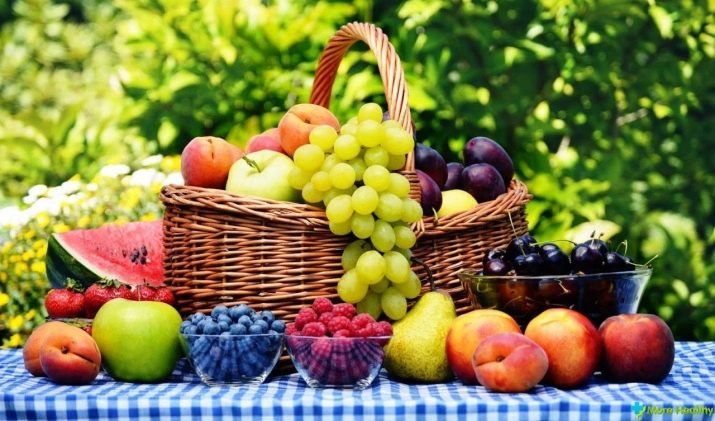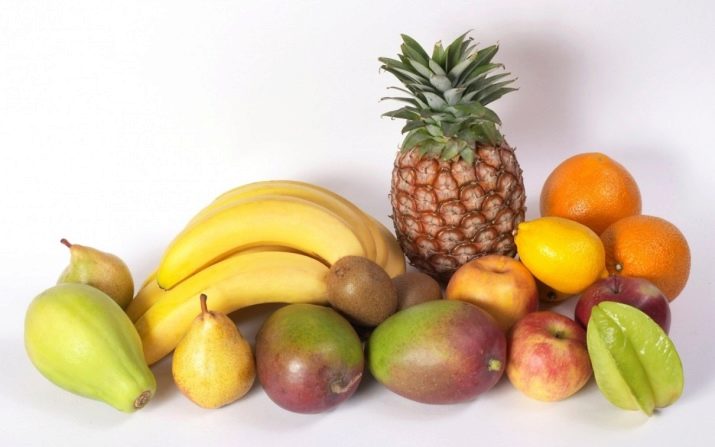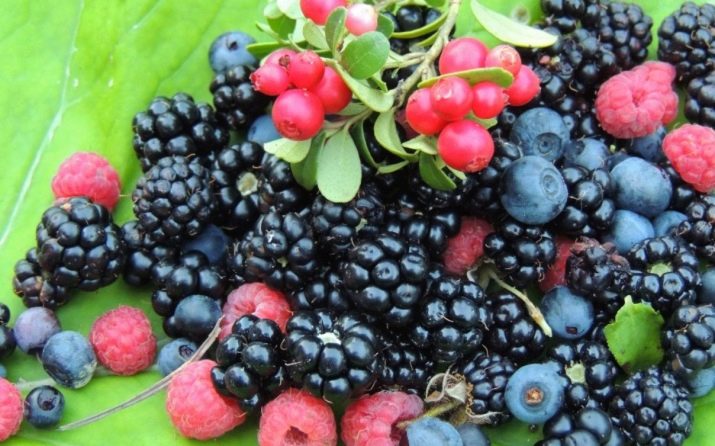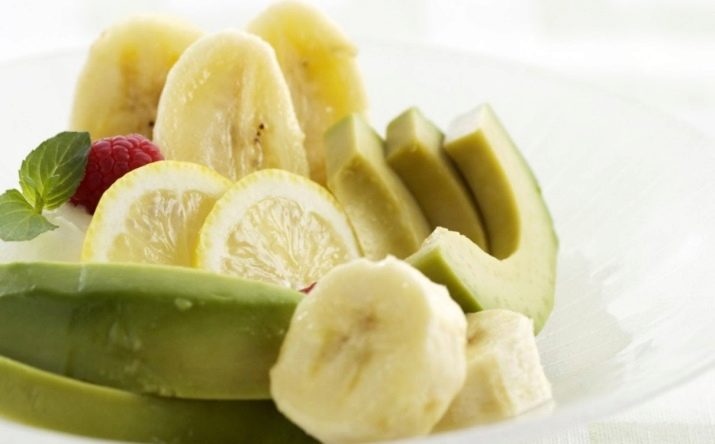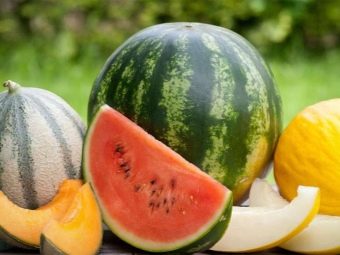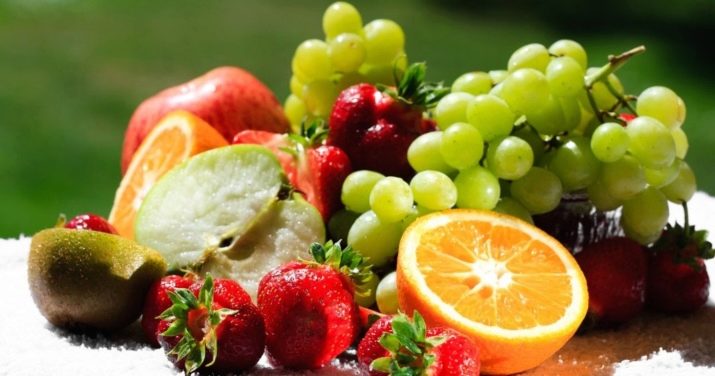How are berries different from fruits?
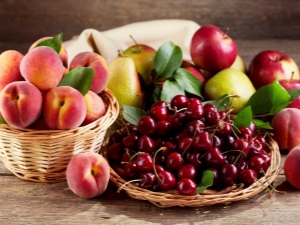
Each of us since childhood knows that the best sweets and the most healthy desserts are fresh fruits and berries. Especially vitamins are fruits picked directly from the garden.We love to eat them not only fresh, but also to make jams from them, to add to cereals and yogurts, and also to make other dishes.
What is the difference between these two groups? How does a berry differ from a fruit? How to distinguish one from another independently at home, without resorting to the help of the reference book on botany? You will find answers to these questions in our material.
What is a fruit?
In the modern world, the variety of such fruits is simply amazing, and the shelves of supermarkets are literally overflowing with not only domestic, but also exotic fruits and berries.
To begin, let's deal with scientific terminology.
Generally speaking, the word “fruit” came to Russian from the Latin language and in literal direct translation it means “fruit”. In scientific circles, in particular - among nerds, fruit is called that way.
If to explain scientific terms in simple words, it turns out that the fruit is the fruit of a tree or plant that contains the seeds necessary for subsequent distribution.
It is worth noting that when using the word “fruit”, scientists mean juicy and edible plant flesh, which has a clearly defined shape in space.
What is a berry?
Having dealt with the fruit, now let's talk about the berries.
A berry is a variety of fruit that has a fleshy structure and contains many seeds within it. Among scientists, the definition of a berry sounds like "a variety of a multi-seeded fruit."
It turns out that the main characteristic and the main difference of a berry from a fruit is the presence of seeds inside the fruit.
General and various
If, from a scientific point of view, all this has become more or less clear, the practical question is still unclear. How to distinguish between fruit and berry at home? In order to understand this issue, it is necessary to consider some important characteristics.
So, the size and volume of the fetus plays the primary role. It is believed that the berry can be freely wrapped around with two fingers of one hand, and in order to clasp the fruit, it is necessary to bring the whole brush to work, or both.
It is also worth noting the fact that the bulk of fruits are cultivated (or garden) fruits, they are specially cultivated and bred by people in orchards and gardens, intended for further consumption. At the same time, most types of berries can be wild - so everyone knows the phrase "wild berries".
Interesting! Usually, the phrase "forest berries" refers to a mix of blackberries, black and red currants, and cranberries.
Another difference is that berries can often be poisonous (for example, wolf berries). That is why you should not eat or even taste unfamiliar fruits.
At the same time, the fruit can not be poisonous. This group includes only edible and edible fruits.
It is important to pay attention to the presence of seeds inside the pulp of the fruit. If there are any, then you eat the berry. In fruits, the seeds are completely absent, but there is one big bone.
It is also necessary to take into account the fact that the bulk of fruits and berries have a sweet taste (there may be bitter or sour notes), however, one should not forget about exceptions. For example, lemon - sour, and avocado has almost neutral taste. However, do not confuse these fruits with vegetables.
Thus, knowing these features and facts, you will be able to independently figure out whether you are eating a fruit or a berry. At the same time, it should be borne in mind that there are a large number of botanical nuances and scientific details that only a professional researcher can deal with.
You will learn more about the differences between berries and fruits by watching the following video.
Interesting Facts
Our nature is quite amazing and multifaceted. To penetrate deeper into its secret bowels, should read interesting information about fruits and berries.
- In the people it is believed that distinguishing fruit and berries is quite simple. You need to know how and where this fruit grows. So, it is accepted to think that fruit grows on trees, and small shrubs are the patrimony of berries. This is not entirely true. After all, on this principle cherries can be attributed to fruit, which is not true. This statement is most likely a folklore invention, rather than a scientifically based fact.
- Botanical science calls strawberries and strawberries "false berries." The fact is that in the formation and development of these fruits not the last value (except the ovary) has the so-called receptacle. The fruits of these plants can be called overgrown receptacles or even nuts.
- Botanist scientists attribute fruits such as orange and lemon to berries, but avocados, by the way, are fruits.
- In the CIS countries, among ordinary people, everyone’s favorite tomato is considered a vegetable, domestic botanists call this fruit a berry, and scientists working in the United States of America call tomato a fruit (this provision is fixed at the state level). Here is a multi-faceted fruit.
- Contrary to popular belief, melon and watermelon are berries, not fruits, although there are other views on this issue.
Thus, we were able to make sure that in botanical science everything is not as clear as it seems at first glance and unarmed. So, many fruits that we consider fruits are considered berries (and vice versa).
In order to accurately determine the subspecies of the fetus, you should consider all the special characteristics, as well as similar and different features.
In everyday life, the ability to classify the fruits of these groups will help you to demonstrate your erudition and broad outlook. In addition, this knowledge will be useful in order to be able to explain the botanical tricks of the plants to your child.

